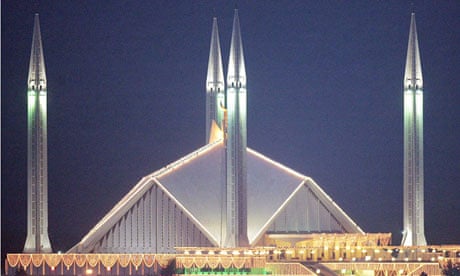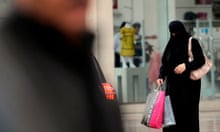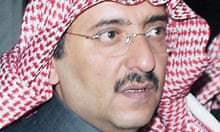Saudi Arabia is funding a $100m mosque and Islamic education centre in Kabul that will teach thousands of students a year and help bolster Saudi influence in Afghanistan as the west withdraws.
Work on the sprawling 30-hectare (75-acre) hilltop complex is due to be completed by early 2016, when Afghan security forces will likely be trying to hold off the Taliban with little Nato support.
"This Islamic centre has several aims, one is to ensure good relations between Afghanistan and Saudi Arabia," said the acting Saudi minister of hajj and Islamic affairs, Dr Dayi al-Haq Abed.
Afghanistan's neighbours and allies have been jostling for power in the country for years; spending millions of dollars on aid, education, TV and radio channels.
Efforts to secure a stake in Afghanistan's future are intensifying with the 2014 Nato withdrawal deadline looming, and a presidential election to chose the first new leader in more than a decade set for April that year.
But Abed said the centre was a decade-old project conceived by Saudi Arabia's late King Fahd, not a hasty effort to bolster the Gulf state's role in Afghan affairs.
"It's not a political centre, its an independent centre," he told the Guardian. "This centre will never try to work against the interests of Afghanistan or Saudi Arabia. It is firstly a place for prayer and secondly for education."
A university with a library, lecture halls, gym and dormitories for 5,000 students will sit on a hill overlooking Kabul, next to the tomb of the last Afghan king, Mohammed Zahir Shah. The nearby mosque will hold up to 15,000 worshippers, making it one of the largest in the country.
Saudi Arabia has been one of the key players in the turbulent decades since the Soviet invasion at the end of 1979, influencing both religion and politics in Afghanistan.
The Saudis were a major funder of mujahideen in Afghanistan, sending millions of dollars to Pakistan-based groups to pay for weapons and other supplies. When civil war broke out it helped sponsor a peace deal, even bringing top Afghan commanders to Mecca to swear they would respect the agreement – although it fell apart almost immediately.
After the rise of the Taliban, Saudi Arabia was one of only three countries to recognise the hardline regime, but since its fall in 2001 it has remained a generous donor to the western-backed government of Hamid Karzai. More recently it helped lay the groundwork for efforts to negotiate an end to the war. Saudi diplomats have kept a lower profile than others though.
The new centre will likely have a large pool of applicants. Religious schools mostly funded by private individuals and Saudi institutions have spread the kingdom's strict Wahhabi branch of Islam inside Afghanistan and Pakistan – and all Afghans hope to travel there on the hajj pilgrimage at least once in their lifetime.
The Afghan government has donated the land, and basic engineering work is already completed. A joint committee of Saudi diplomats and Afghan officials from the ministry of Islamic affairs will oversee the centre once it is up and running.
"Its a big achievement for the Afghanistan government and the ministry of hajj and Islamic affairs," Abed said, adding that he hoped it would pave the way for more Afghan students to further their education in Saudi Arabia.
Additional reporting by Mokhtar Amiri


